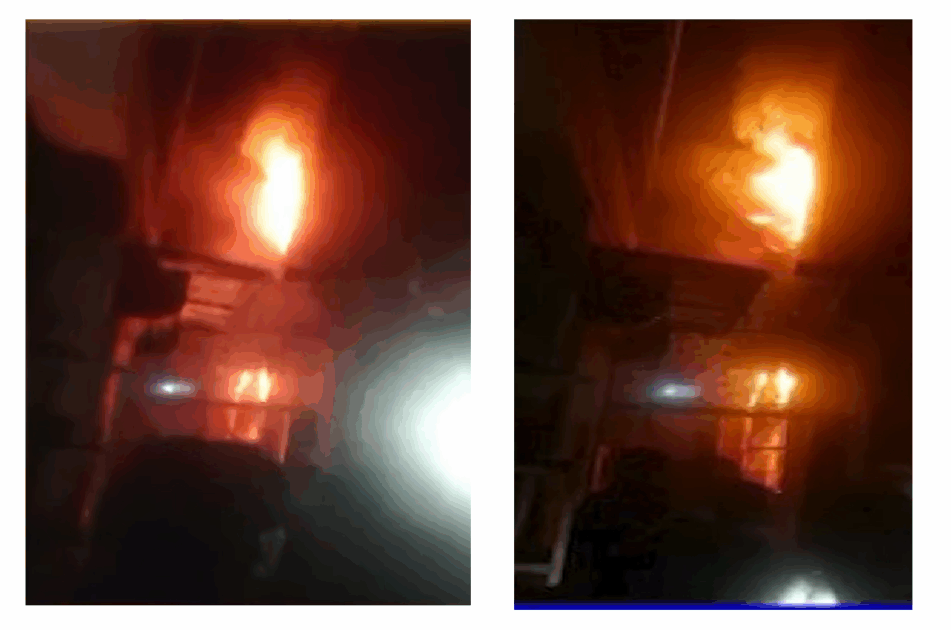- Web Desk
- 27 Minutes ago

Withdrawal of wheat subsidy: Awami Action Committee announces GB-wide protests
-

- Tanveer Abbas Web Desk
- Nov 13, 2023

GILGIT: The Awami Action Committee (AAC) of Gilgit-Baltistan announced on Monday that it would commence GB-wide protest demonstrations against the withdrawal of the wheat subsidy, starting from Tuesday.
The decision was reached during an emergency meeting with all relevant stakeholders to address the exorbitant increase in wheat prices and other public concerns, including the targeted subsidy.
According to a statement released by AAC, the protest movement will kick off in Diamer on Tuesday, with demonstrations in Darel, Tangir, and Chilas. Subsequently, the protests will be extended to encompass all of Gilgit-Baltistan.
The meeting was attended by AAC representatives from all districts of Gilgit-Baltistan, as well as over 20 religious and political parties. The statement said that the meeting unanimously rejected the targeted wheat subsidy and the significant price hike, considering it equivalent to taking food from the mouths of the people of Gilgit-Baltistan.
The meeting emphasized that their movement is no longer solely about wheat subsidies but also about the identity of Gilgit-Baltistan and the establishment of a constitutionally empowered assembly.
They accused the authorities of using subsidies as a means of blackmail and declared their intention to hold the government accountable for decades of resource exploitation.
GB Govt faces backlash over withdrawal of wheat subsidy
According to the statement, the participants demanded that the Pakistani government return the GST collected over 75 years, amounting to billions, to the people of Gilgit-Baltistan.
On Friday, the Gilgit-Baltistan (GB) cabinet decided to raise the subsidized wheat price from Rs20 to Rs52 per kg. The cabinet announced to limit wheat subsidy to families having an income of less than Rs40,000. The cabinet said government officials above grade-17 and people having above R40,000 per month would not be entitled to subsidized wheat.
Meanwhile, following strong criticism on social media, the Gilgit-Baltistan government has decided to withdraw the special wheat quota allocated to various government departments and dignitaries.
“In the light of the decision of the Gilgit-Baltistan Cabinet meeting held on November 10, special quotas of subsidized wheat/flour allocated to various government departments, special institutions, dignitaries, etc is hereby canceled with immediate effect,” read the notification issued by GB Food Department on Monday.
The G-B Food Department directed all district heads to stop all such distribution forthwith. CSOs/assistant directors of food department will ensure the implementation of the directives in true letter and spirit. There shall be a complete ban on allocation of special quota of subsidized wheat/flour to any individual or institution in the future,” it said.
The food department also directed redistribution of wheat/flour saved from this initiative among the deserving people/areas under intimation to this office.
AAC spokesperson Afaq Balawar, in his social media posts, revealed that over 1000 sacks of flour from the GB wheat quota were allocated to various government departments and individuals who were not entitled to it.
According to Balawar, Rangers get 128 sacks, the Chief Secretary House 24 sacks, the IG Police House 20 sacks, GB Accountant General’s Office 12 sacks, Hashoo Foundation 12 sacks, and the Secretary Judges Konodas 48 sacks of wheat on a monthly basis.
Similarly, Additional Session Court Konodas get 16 sacks, Police Training College Gilgit 40, and Frontier Constabulary Kashrot 40 sacks. The list extends to PRC Juglot with 44 sacks, GB Scouts Manawar with 52 sacks and various police stations and hostels.
This misallocation has raised serious concerns among the local population and authorities, as these quotas are meant for the residents of Gilgit-Baltistan, a region with unique needs and entitlements. AAC, along with other social and political organizations, is calling for immediate rectification and transparency in the quota allocation process.
The misuse of these quotas not only deprives the rightful beneficiaries but also undermines the trust in the administrative processes of the region. The local community and stakeholders are demanding accountability and urging the government to ensure that the benefits reach the intended recipients in Gilgit-Baltistan.





